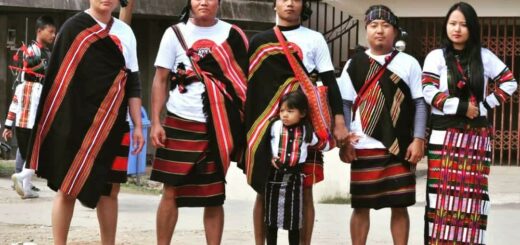National Current Affairs – UPSC/IAS Exams- 19th December 2019
India Bangladesh Joint Water Commission
Topic: International Relations
In News: Bangladesh has not sent a delegation for the Joint River Commission (JRC) meeting with India that was scheduled recently.
More on the Topic:
- This has cast a shadow over the agreement to share the waters of the Feni river that was taken up during the October visit of Prime Minister Sheikh Hasina to India.
- Hasina’s October meeting with Prime Minister Narendra Modi had laid down the agenda of the JRC, declaring that the Technical Level Committee of the JRC was to firm up the draft framework agreement of the interim sharing of the Feni river’s waters with Tripura.
- Bangladesh had agreed to let India withdraw 1.82 cusecs from the river to supply the border town of Sabroom in the northeastern State.
About Joint River Commission:
- An Indo-Bangladesh Joint Rivers Commission (JRC) is functioning since 1972. It was established with a view to maintain liaison in order to ensure the most effective joint effort in maximizing the benefits from common river systems.
- The JRC is headed by Water Resources Ministers of both the countries.
- A new chapter in the Indo-Bangladesh relations opened up with signing of a Treaty by the Prime Ministers of India and Bangladesh on 12th December 1996 on the sharing of Ganga/Ganges waters.
- The Treaty shall remain in force for a period of thirty years to be renewable by mutual consent. For monitoring the implementation of the Treaty, a Joint Committee has been set up.
- Discussions have been continuing with Bangladesh for sharing of waters of Teesta&Feni rivers besides other six common rivers namely; Manu, Muhri, Khowai, Gumti, Jaldhaka and Torsa.
- of India is at its endeavour to conclude the agreement of the sharing of waters of Teesta and Feni rivers with Bangladesh, which is acceptable to all parties concerned and which protects the interests of all stakeholders.
- There exists a system of Transmission of flood forecasting data on major rivers like Ganga, Teesta, Brahmputra and Barak during the monsoon season from India to Bangladesh. The transmission of flood forecasting information during the monsoon has enabled the civil and military authorities in Bangladesh to shift the population affected by floods to safer places.
Source: Hindu
Capital Punishment
Topic: Polity/Social issues/Ethics
In News:There is repeated demands to punish all rape convicts with the death penalty, it becomes important to examine empirical evidence on the topic.
More on the Topic:
- There should be four elements of a systematic punishment imposed by the state: the protection of society; the deterrence of criminality; the rehabilitation and reform of the criminal; and the retributive effect for the victims and society.
- Capital punishment, in its very essence, goes against the spirit of the ‘Theory of Punishment’, and by extension, natural justice.
- The first element, ‘protection of society,’ is not served by imposing the death sentence any better than by incarceration. This has been proven time and again as inmates have spent decades on death row, harming no one, but being brutalised by the inhuman punishment meted out to them.
- Second, there are several factors which effect criminal activity and deterrence is only one of them. In a UN survey, it was concluded that “capital punishment deters murder to a marginally greater extent than the threat of life imprisonment.”
- The report of the Justice J.S. Verma Committee said that capital punishment is a regressive step and may not provide deterrence. The committee recommended the life sentence for the most grievous of crimes.
- Third, the facet of ‘reform and rehabilitation of the criminal’ is immediately nullified by the prospect of capital punishment.
- This leaves only the final element, ‘the retributive effect’. Killing should never be carried out based on the primal and emotive desire among human beings for revenge. Revenge is a personalised and emotional form of retribution, which often loses sight of proportionality.
Way Ahead:
- In the light of the recent incidents of heinous violence perpetrated against women, it becomes imperative for the judiciary not give in to the public clamour for making capital punishment mandatory for rape convicts.
- Public angst and emotions cannot be an alternative to reason and logic.
- A reasonable man is deterred not by the gravity of the sentence but by the detectability of the crime.
- There needs to be better enforcement of law in response to valid questions on justice but death penalty is not only the answers.
Model Mains Question: Does The Death Penalty Stop Crime? Critically Analyse.
Source: Hindu
Topic: Environment and Ecology
In News: The government of Pakistan has issued special permits to the Emir of Qatar o hunt the houbara bustard, an internationally protected bird species.
More on the Topic:
- Bustards are large, terrestrial birds that belong to several species, including some of the largest flying birds.
- The houbara bustard, which lives in arid climates, comes in two distinct species as recognised by the International Union for Conservation of Nature, one residing in North Africa (Chlamydotis undulata) and the other in Asia (Chlamydotis macqueenii).
- The population of the Asian houbara bustards extends from northeast Asia, across central Asia, the Middle East, and the Arabian Peninsula to reach the Sinai desert.
- According to the International Fund for Houbara Conservation (IFHC), roughly 33,000 Asian houbara bustards and over 22,000 of the North African houbara bustards remain today.
- After breeding in the spring, the Asian bustards migrate south to spend the winter in Pakistan, the Arabian Peninsula and nearby Southwest Asia.
- Some Asian houbara bustards live and breed in the southern part of their ranges including parts of Iran, Pakistan and Turkmenistan.
- IUCN status: Vulnerable
Source: Hindu
Topic: Government Schemes
In News: The Centre has decided to extend the mission period of its flagship initiative Atal Mission for Rejuvenation and Urban Transformation (AMRUT) by two more years.
More on the Topic:
- AMRUT along with Smart Cities Mission was jointly planned to transform urban living conditions through infrastructure upgradation.
- AMRUT provides for basic civic amenities like water supply, sewerage, urban transport, parks as to improve the quality of life for all, especially the poor and the disadvantaged.
- AMRUT is aimed at transforming 500 cities and towns into efficient urban living spaces over a period of five years.
- AMRUT is a centrally sponsored scheme with 80% budgetary support from the Centre.
Five hundred cities have been selected under AMRUT. The category of cities that have been selected under AMRUT is given below:
- All Cities and Towns with a population of over one lakh with notified Municipalities as per Census 2011, including Cantonment Boards (Civilian areas).
- All Capital Cities/Towns of States/ UTs, not covered in above.
- All Cities/ Towns classified as Heritage Cities by MoHUA under the HRIDAY Scheme.
- Thirteen Cities and Towns on the stem of the main rivers with a population above 75,000 and less than 1 lakh.
- Ten Cities from hill states, islands and tourist destinations (not more than one from each State).
Source: Hindu
Topic: International Affairs
In News: First ever Global Refugee Forum meeting was held in Geneva, Switzerland.
More on the Topic:
- Global Refugee Forum is guided by the Global Compact on Refugees.
- The compact calls for greater support to refugees and the countries that host them, often among the poorest in the world, and also aims to help refugees become more self-reliant so that they can contribute more to their own future and to that of the host community.
- The compact emerged from the New York Declaration for Refugees and Migrants in 2016.
- The United Nations General Assembly unanimously adopted the declaration in 2016. It reaffirms the importance of the international refugee regime and contains a wide range of commitments by Member States to strengthen and enhance mechanisms to protect people on the move.
- It is part of the United Nations High Commissioner for Refugees (UNHCR).
Source: Hindu
Pradhan Mantri Gram Sadak Yojana
Topic: Government Schemes
In News: Union Minister of Rural Development, Agriculture and Farmers Welfare, Shri Narendra Singh Tomar launched the third phase of Pradhan Mantri Gram Sadak Yojana.
More on the Topic:
- The third phase aims at consolidation of 1,25,000 km of connectivity that primarily aiming at rural links connecting Gramin Agricultural Markets.
- The funding pattern is set between the centre and state as 60:40. In the north-eastern states it is set as 90:10.
- So far 53,491 rural road works have been completed under the scheme. This connects 27% of feasible habitations and adds up to 6 lakh kilometres of roads across the country.
- The scheme has used waste plastic and cold mix technology to build major portion of roads.
Source: PIB
Topic: Science and Technology
In News: The International Astronomical Union (IAU) named a white yellow star in Sextans Constellation as “Bhibha” and its planet as “Santamasa.”
More on the Topic:
- The star has been named Bhibha honoring Indian Woman Scientist Bhibha Choudhury who discovered subatomic particle pi-meson.
- Bhibha means a bright beam of light in Bengali. The name Santamasa in Sanskrit means clouded. The name is appropriate as the planet’s atmosphere is clouded.
- The IAU that celebrated its 100th birth anniversary on July 28, 2019, allowed every country to give a famous name to selected pair of exoplanet and its host star.
About Bhibha Star:
- Bhibha is an ageing star that is 6.2 billion years old and Santamsa is its only planet. The mass of the planet is expected to be 1.5 times as that of Jupiter and is very hot. Santamasa completed its revolution around its star in just about 2.1375 days.
| In particle physics, pi meson or pion is a subatomic particle. They are unstable and existing with positive, negative and neutral charges. It means that they are present in proton, neutron and electron of an atom. |
Source: Indian Express


















